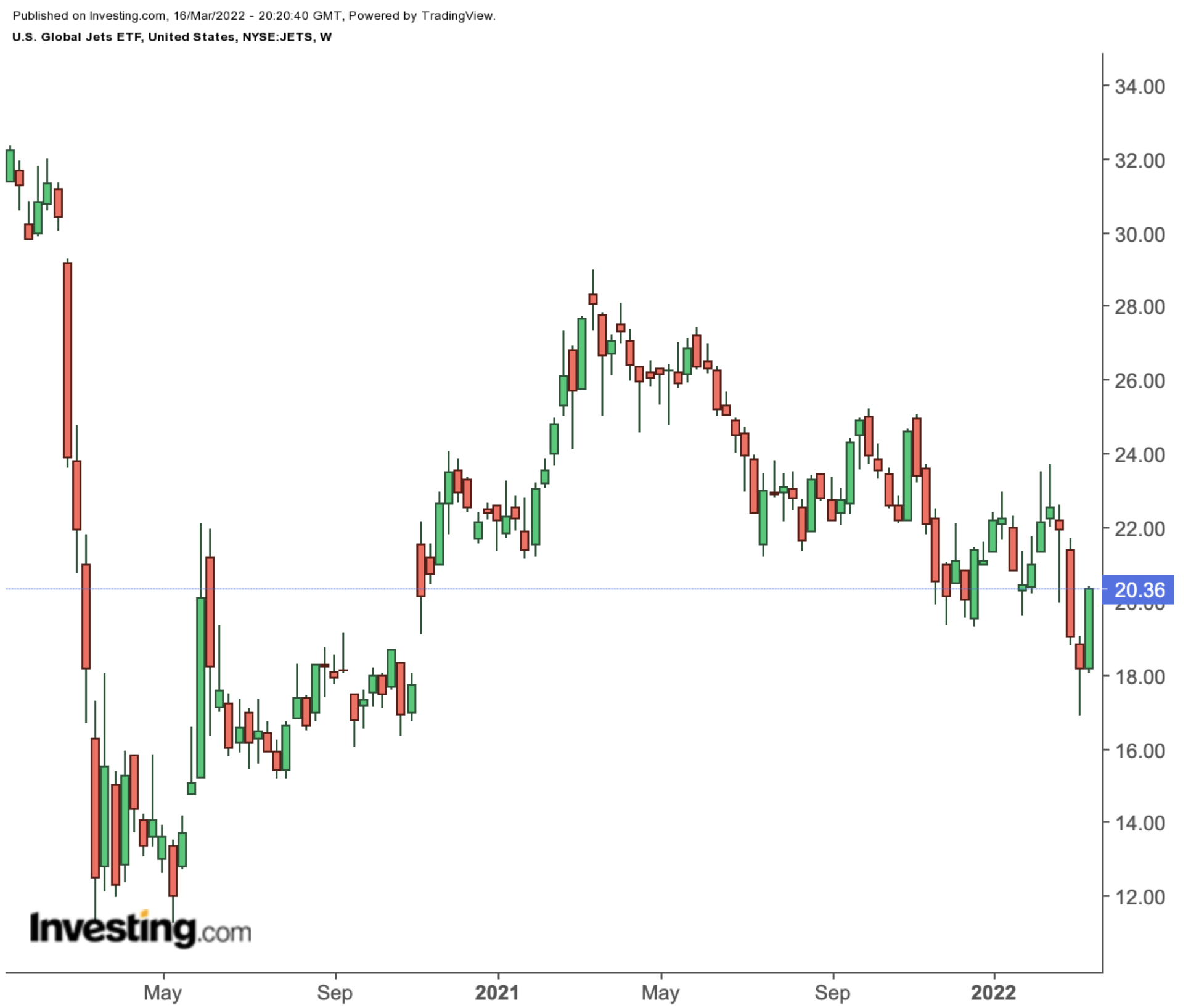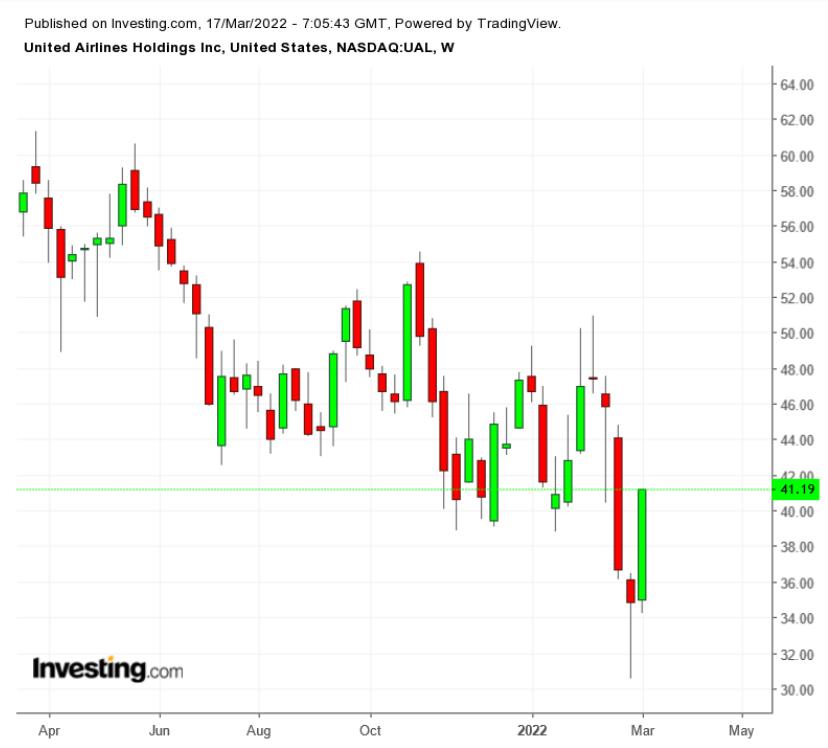Since the pandemic hit in March 2020, travel bookings collapsed as lockdowns proliferated. And as each new COVID wave seemed to fade, sentiment on the sector began to recover. But with each new variant of the virus investors have seen many false starts for the badly-hit industry. This year has been no different.
Just as the rebound in air travel was taking hold after the rapid spread of the Omicron variant last winter, rising fuel costs now seem to be dampening the sector’s growth outlook again. As a result, the U.S. Global Jets ETF (NYSE:JETS) recorded a 13% loss during the past month. It closed on Wednesday at $20.35.

Amid growing global energy constraints due to Russia’s invasion of Ukraine, airlines are now projecting jet fuel to cost $2.80 to $3 a gallon this quarter, up from previous estimates of around $2.50.
These figures could potentially derail efforts to return to profitability for most U.S. airlines as they try to recover from the collapse in travel during the coronavirus pandemic.
Airline executives, however, remain optimistic. They told investors this week that travel demand is rebounding quickly and that the prospect of passing inflationary pressures to the final consumer will likely secure profitability in the upcoming quarters.
Capacity Cuts
Several of the largest carriers, including United Airlines (NASDAQ:UAL) and American Airlines (NASDAQ:AAL), have cut their seat capacity forecasts for the first quarter. That's a move that will help them fetch higher ticket prices.

United’s first-quarter capacity will be 19% below 2019 levels. For Southwest Airlines (NYSE:LUV) this metric will drop as much as 10% compared with the same quarter in 2019, while Delta (NYSE:DAL) will fly about 17% less capacity this quarter than in 2019.
United sees “unprecedented leisure demand,” according to Andrew Nocella, the airline’s chief commercial officer. He added, in a Bloomberg report:
“People want to get back out. Business traffic is booming, although we still have a long way to go.”
However, these encouraging air traffic trends can’t hide that airline shares have been a poor investment for several years now. For instance, the JETS ETF is down 27.2% during the past five years, during which the S&P 500 rose 82.7%.
Furthermore, even if leisure traffic continues to rebound, there is only a slim chance the business travel segment—the most profitable for airlines—will return to pre-COVID levels any time soon.
For these reasons, analysts are not excited about airline stocks. Seaport Research, while downgrading American Airlines to neutral from buy, said in a recent note:
“Energy market chaos tied to the Russia/Ukraine war and a supply/demand dynamic poorly calibrated for the industry’s new cost structure prompt us to capitulate on weaker balance sheet stories.”
Bank of America said travel demand should outpace supply, particularly during peak leisure times, but it will not create enough pricing power for airlines to offset higher fuel costs.
The next stage of growth for airlines, which will depend on business travel, is still facing an array of uncertainties including the shape of potential new COVID variants and escalating geopolitical risks. In addition, businesses are unlikely to resume worker travel when inflation is surging and managers are looking to cut costs.
Bottom Line
Despite a rebound in air travel, airline stocks don’t make a compelling investment case for long-term investors. These carriers continue to face numerous challenges, including higher fuel costs, a cut-throat competitive environment, and the potential emergence of new coronavirus variants.
